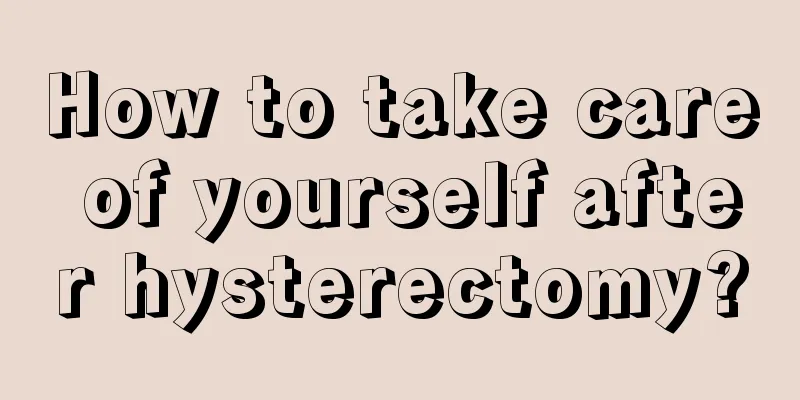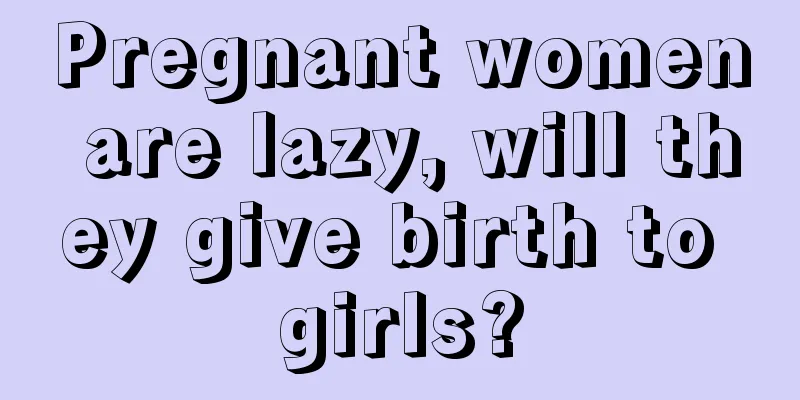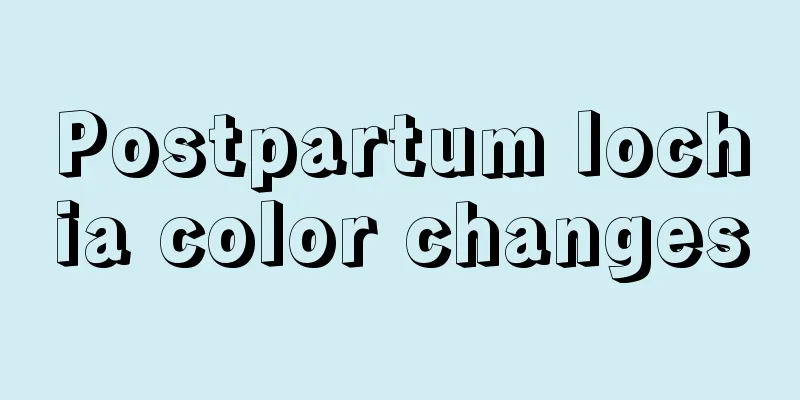How to take care of yourself after hysterectomy?

|
When it comes to the harm of uterine fibroids to health, most people may not know much about it. In everyone's impression, uterine fibroids are just a small tumor growing on the uterus and can be removed. In fact, this is not the case. If uterine fibroids are not treated and maintained effectively, then some complications are likely to occur. Let’s take a look at the maintenance matters after hysterectomy. The most important thing in diet after hysterectomy is to avoid spicy food, alcohol, frozen food, etc. The diet should be light, and avoid eating irritating foods such as mutton, shrimp, crab, eel, salted fish, and black fish. Avoid spicy foods and drinks such as chili peppers, peppercorns, raw onions, raw garlic, and white wine. Avoid eating foods that are hot, coagulant, or contain hormones, such as longan, red dates, donkey-hide gelatin, and royal jelly. If you have anemia, eat more foods high in iron, such as pork liver, black sesame, grapes, seaweed, wolfberry, shiitake mushrooms, etc. Avoid greasy foods. Eating too much greasy food will lead to fat accumulation, making wounds difficult to heal and weakening resistance to bacteria. After surgery, patients should increase their protein intake. Foods such as fish, meat, beans, eggs, and milk are rich in protein, which can help wound healing and increase physical strength. In terms of meat, patients can choose more fish because fish is easier to digest and absorb, but remember to eat the meat and not just drink the soup. In addition, eat an appropriate amount of vegetables and fruits. Because vegetables and fruits are rich in vitamins and minerals, they can help patients heal their wounds and increase their body's resistance. At the same time, pay attention to drinking more water and avoid eating foods that easily cause bloating, such as onions, cabbage, sweet olives, soy products, etc. Drink plenty of water. Drink 2000-3000cc of water every day to prevent constipation. Do not eat foods that easily cause bloating: such as onions, cabbage, olives, soy products, etc. Eat at regular times and in regular amounts, and do not overeat. To sum up, for patients who have had their uterus removed, they must pay attention to a low-fat diet and eat more fresh fruits and vegetables, lean meat, eggs, etc. Some dried fruits rich in vitamins and minerals are also beneficial to the recovery of the disease and can be eaten often. In addition to diet, the role of pleasant emotions in disease cannot be ignored. |
<<: How to take care of yourself after hysterectomy?
>>: How to take care of yourself after hysterectomy?
Recommend
Girlfriend is unreasonable
In love, both men and women need to be considerat...
Common causes and care points for baby diarrhea
Diarrhea is one of the common digestive system di...
Can seborrheic alopecia in girls be cured?
Girls with long flowing hair are one of the crite...
Overview of Vulvar Ulcers
Vulvar ulcer is a skin ulcer caused by the stimul...
PP Assistant: Research on the development trend of Android mobile applications in the first half of 2015
Alibaba's mobile assistant, PP Assistant Andr...
What is the content of the breathing method for pregnant women during childbirth?
Giving birth is a painful thing, mainly because i...
Why does uterine bleeding occur?
The uterus is the most important organ for women....
How to wear underwear to enlarge breasts?
There are a large number of women with small brea...
[Medical Q&A] If I have myasthenia gravis and I am worried about the side effects of hormones, should I not use hormones?
Author: Guo Yanli, The First Affiliated Hospital ...
The correct way to wash your buttocks for pregnant women
After pregnancy, pregnant women need to pay atten...
Is it normal for a woman to not have her period for a month?
The biggest difference between female friends and...
Can I have sex if I'm infected with HPV?
HPV is a relatively common viral infection, which...
I always feel slightly nauseous. What's going on?
Many women may encounter such problems, that is, ...
What to do if a pregnant woman has rhinitis and sneezes
Rhinitis during pregnancy is also known as vasomo...
Is it too late to have a postpartum checkup on day 53?
It is inevitable and normal to have lochia after ...









